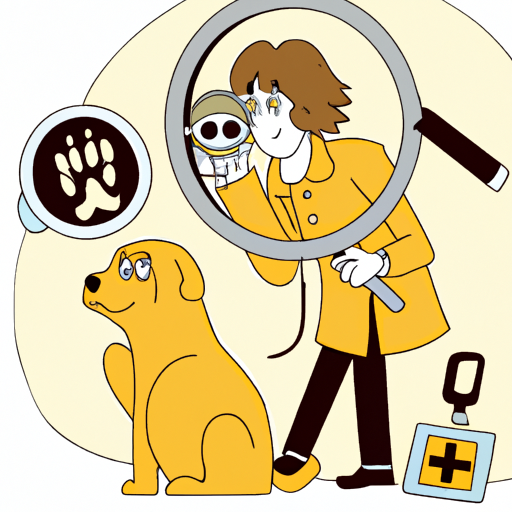As a dedicated caregiver to your beloved canine companion, you’re likely always on the lookout for any signs of discomfort or illness. One such condition that you should be aware of is jaundice in dogs. Noted by a yellowing of the skin, whites of the eyes, and gums, jaundice can be indicative of several serious health issues. In this article, we’ll explore the causes of jaicundice in dogs, how it can be diagnosed, and potential treatment options.
Understanding Jaundice in Dogs
Jaundice, also known as icterus, is not a disease in itself. Rather, it’s a symptom that arises due to an underlying condition. The distinctive yellow tint is a result of excessive bilirubin, a yellow-orange pigment produced during the breakdown of red blood cells. When things are working correctly, the liver filters out bilirubin, and it’s excreted through the body’s waste. However, if there’s an issue with the liver, or an abnormal number of red blood cells being destroyed, bilirubin can build up and lead to jaundice.
Common Causes of Jaundice in Dogs
There are a variety of conditions that can cause jaundice in dogs. Some of the most common include:
- Liver Disease or Liver failure: This could be due to a variety of reasons such as hepatitis, cancer, or cirrhosis.
- Hemolytic Anemia: A condition where the dog’s body destroys its own red blood cells, leading to a high level of bilirubin.
- Bile Duct Obstructions: Blockages in the bile duct can prevent the bilirubin from being excreted properly.
- Infections or Blood Parasites: Certain infections or blood parasites can destroy red blood cells.
Diagnosing Jaundice in Dogs
Early detection is key for successful treatment. If you notice a yellow tint to your dog’s skin, eyes, or gums, it’s important to consult with a vet immediately. Potential diagnostic tests could include:
- Blood tests
- Urinalysis
- Ultrasound or X-ray
- Liver function tests
- Biopsy if necessary
Treating Jaundice in Dogs
The treatment for jaundice in dogs will largely depend on the underlying cause. This could include:
- Antibiotics or antiviral medication for infections
- Surgery for bile duct obstructions
- Special diet and medication for liver disease
FAQs
Q: How can I prevent jaundice in my dog?
A: Regular check-ups and a balanced diet can help maintain your dog’s overall health and potentially prevent conditions that lead to jaundice.
Q: Is jaundice painful for dogs?
A: While jaundice itself isn’t painful, the underlying conditions causing it can cause discomfort.
Q: Can jaundice be cured in dogs?
A: With proper diagnosis and treatment, many dogs can recover from the conditions causing jaundice.
Remember, as a caregiver, your watchful eyes and timely action can make a world of difference in your dog’s health. Be vigilant, be aware, and here’s to many more years of wagging tails and wet-nosed kisses!



